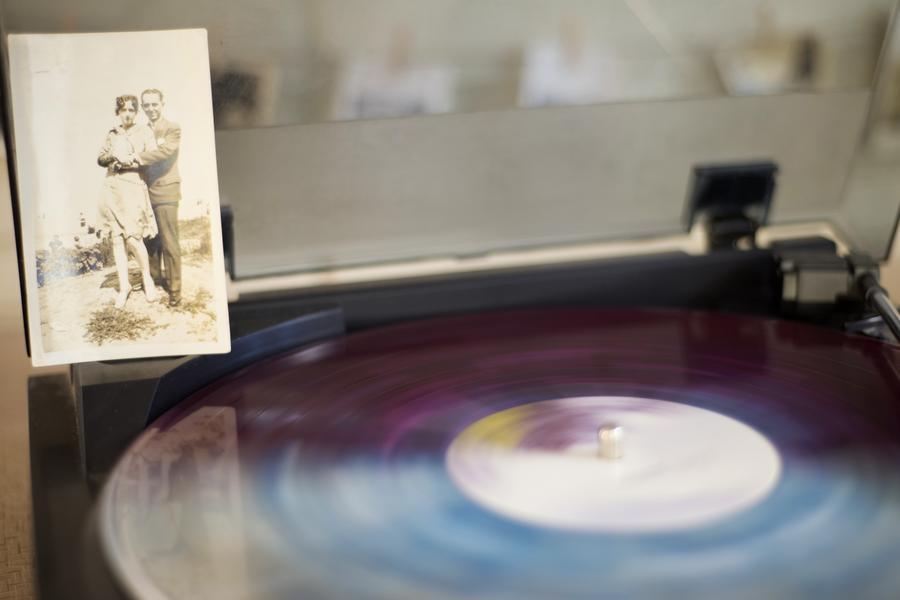There’s no doubt in my mind about my love for Bon Iver. There’s also no doubt in my mind that I loathe Meghan Trainor’s music, but why is that so? Why are there artists whose music I find amazing, and also music I despise with a burning passion?
Simply put, everyone has different opinions as to what constitutes “good” and “bad” music. The complex part is understanding how and when these personal opinions are formed.
These musical perspectives begin to form in our youth, when everything in the world is new to us and we are learning how everything works. In this stage of immense learning, we are also subconsciously discovering what music is and what it sounds like. If one of our parents happens to be listening to Bloc Party around us as a child, we will develop a general thought about what we’re hearing. We will think to ourselves, “Bloc Party = music.”
Todd R. Schachtman, a psychology professor at the University of Missouri, says that this may be due to a process called “imprinting.” Learning during imprinting, a stage of learning during a certain window of development, is very powerful and quick.
“It might be true that exposure to many different types of music when one is young can increase the range of types of music that one appreciates in adulthood,” Schachtman said.
Schachtman also said that parents can influence their child’s musical appreciation. He said parents can “model” the enjoyment of music as a whole.
“If kids see their parents preferring to enjoy music — going to concerts, listening to music while sitting in their car — rather than doing other things, it can influence how much they think listening to music is a valuable activity,” Schachtman said.
According to a 2013 NPR article, a study found that “young adults have strong positive memories of the music their parents loved when they were the same age.” This reveals that the connection between our parents’ tastes and our own is positive.
This is something I experienced as a child. I’m undeniably a huge fan of genres such as indie rock and alternative, and I believe this is largely due to the fact that my mom introduced this genre to me at a very young age. She was constantly playing bands like The Cure, Yeah Yeah Yeahs and The Killers in the car.
When I was subconsciously discovering what music was, this is what I consistently heard. This environment cultivated my proclivity for indie rock and alternative music. Additionally, my dad would play bands such as Death Cab For Cutie and The Postal Service in the car, unknowingly turning me into a massive fan of Ben Gibbard’s music.
After our childhood, when we have developed a taste for a certain kind of music, we begin to seek it out in our adolescence and formative years. We have been led in a specific direction, but now we may run into other genres and subgenres that don’t feel quite as familiar. Sometimes, we strike gold and make a great discoveries.
Friends and acquaintances also greatly factor into this, but it’s much more common in teenage years and adolescence, as discussed in a 2014 article in The Modern Ape. As an example, one of my friends told me about a band called Car Seat Headrest. If he had never suggested the band to me, I might have never found out about them.
A 2014 article in Elite Daily states that our musical tastes reach an “adult-like completion” when we’re 14. Basically, whatever we are listening to at the time of our freshman year of high school is likely to be the kind of music we will be listening to for a long time.
This development of musical preference is representative of how we develop as human beings. As we mature and grow, we gain a deeper insight of the world we live in, as well as our place in it. Through this process of self-discovery, our outlook on music changes as well.
Each stage of our youth marks a different musical time. For example, in middle school, I had my “pop-punk/emo phase,” complete with Hurley shirts, Blink-182 music and a Warped Tour concert tee. My best friend at the time showed me a lot of Blink-182’s music, and I took it upon myself to discover more of that genre. As I aged, my tastes surely matured, lending to the notion that each stage of life opens us up to musical exploration and evolution.
There are numerous factors that play into our musical preferences, and those I explore here don’t even begin to scrape the surface. The amazing part of it, though, is that our musical expansion parallels the other evolutions we experience as humans. Some music will stick with us through adulthood, and some will only be there in the eighth grade. But as we go through each stage of life, our music is there developing alongside us.








